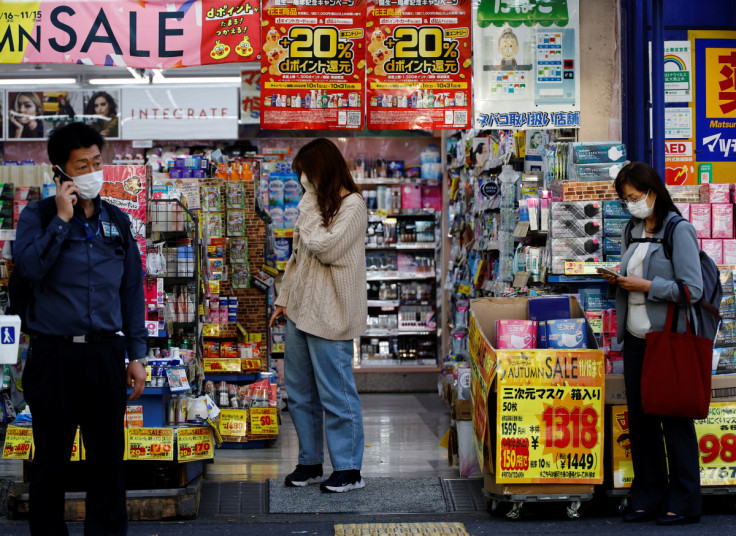Consumer Inflation In Japan's Capital Rises At Fastest Pace In 40 Years

Core consumer prices in Japan's capital, considered a leading indicator of nationwide trends, rose 3.6% in November from a year earlier, marking the fastest annual pace in 40 years in a sign of broadening inflationary pressure.
The gain continued to be driven mostly by electricity bills and food prices as companies passed rising raw material costs on to households, clouding the outlook for consumption and Japan's fragile economic recovery.
The rise in the Tokyo core consumer price index (CPI), which excludes fresh food but includes fuel, exceeded a median market forecast for a 3.5% gain and accelerated from a 3.4% increase seen in October, government data showed on Friday.
The last time Tokyo inflation was faster was April 1982, when the core CPI was 4.2% higher than a year before.
Core consumer inflation in Tokyo remained above the Bank of Japan's 2% target for a sixth straight month in November, casting doubt on its view that recent price rises driven by higher costs will prove transitory.
The Tokyo core-core CPI index, which strips away both fresh food and fuel costs, was 2.5% higher in November from a year earlier, pacing up from a 2.2% annual gain seen in October.
The BOJ has kept interest rates ultra-low on the view that inflation will slow next year when the boost from fuel price gains dissipate. The central bank has therefore remained an outlier from a wave monetary tightening around the world to combat soaring inflation.
Contrary to the experience of some western economies, where wages have surged with inflation, growth in wages and services prices remain muted in Japan.
Of the components making up the Tokyo CPI data, services prices in November were up just 0.7% on a year earlier, after a 0.8% annual increase seen in October. That compared with a 7.7% spike in durable goods prices for November, which followed October's 7.0% annual gain.
Separate data released by the BOJ on Friday showed the corporate service price index, which measures prices that firms charge each other for services, had been 1.8% higher in October than a year earlier. That was slower than a 2.1% annual gain seen in September.
BOJ Governor Haruhiko Kuroda has repeatedly said that, for inflation to sustainably hit his 2% inflation target, wages must rise enough to offset the rise in goods prices.
© Copyright Thomson Reuters 2025. All rights reserved.




















